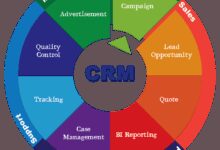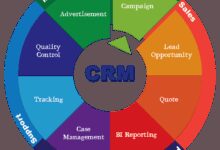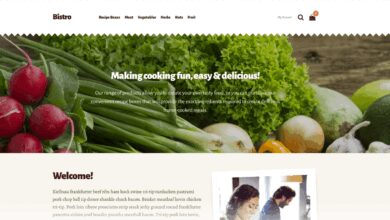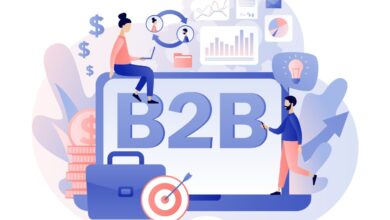Crm system for small business: 5 Best CRM Systems for Small Business in 2024: Ultimate Guide
Running a small business means juggling a thousand tasks—and keeping track of customers shouldn’t be one of the hardest. That’s where a smart CRM system for small business comes in, turning chaos into clarity with just a few clicks.
Why a CRM System for Small Business is a Game-Changer

Small businesses often operate with limited resources, making efficiency crucial. A CRM (Customer Relationship Management) system isn’t just for big corporations. In fact, for small businesses, it can be the difference between steady growth and stagnation. By centralizing customer data, automating follow-ups, and streamlining sales processes, a CRM system for small business empowers entrepreneurs to build stronger relationships and scale smarter.
Boosting Customer Retention and Satisfaction
One of the biggest challenges small businesses face is keeping customers coming back. A CRM system for small business helps by tracking every interaction—emails, calls, purchases, support tickets—so you never miss a beat. When a customer reaches out, your team has instant access to their history, enabling personalized service that builds trust.
- Tracks customer preferences and purchase behavior
- Automates personalized follow-ups and birthday messages
- Reduces response time with integrated communication tools
According to a study by Northwestern University, companies using CRM systems see up to a 27% increase in customer retention. For small businesses, that’s a massive competitive edge.
Improving Sales Efficiency and Forecasting
Sales pipelines can get messy fast—especially when leads are scattered across spreadsheets, emails, and sticky notes. A CRM system for small business organizes your pipeline visually, showing where each lead stands and what action is needed next.
- Visual sales funnel with drag-and-drop stages
- Automated reminders for follow-ups and tasks
- Real-time sales forecasting based on pipeline data
“A CRM doesn’t just track sales—it predicts them. For small teams, that predictive power is like having a crystal ball.” — SalesTech Magazine
Top 5 CRM Systems for Small Business in 2024
With so many options on the market, choosing the right CRM system for small business can feel overwhelming. We’ve narrowed it down to the top five platforms that offer the best mix of affordability, ease of use, and powerful features tailored for small teams.
1. HubSpot CRM
HubSpot CRM is a favorite among small businesses for its intuitive interface and robust free plan. It’s not just a contact database—it’s a full sales, marketing, and service platform that grows with you.
- Free forever plan with unlimited users and contacts
- Seamless integration with Gmail and Outlook
- Automated email sequences and meeting scheduling
HubSpot’s ecosystem allows you to scale from a simple CRM to a full marketing suite as your business grows. Learn more at HubSpot’s official site.
2. Zoho CRM
Zoho CRM strikes an excellent balance between power and price. It’s packed with AI-driven features like Zia (its virtual assistant) and offers deep customization without requiring technical expertise.
- AI-powered sales assistant for forecasting and insights
- Customizable workflows and automation rules
- Strong mobile app for on-the-go access
Zoho integrates with over 40 business applications, including QuickBooks and Mailchimp. For small businesses already using Zoho products, the ecosystem synergy is a major plus. Explore Zoho CRM at Zoho’s CRM page.
3. Salesforce Essentials
Salesforce is the industry giant, and Essentials is its entry-level solution designed specifically for small businesses. While more expensive than others, it offers enterprise-grade features in a user-friendly package.
- Role-based access for team security
- Pre-built templates for common small business workflows
- Strong reporting and dashboard capabilities
Salesforce Essentials integrates with hundreds of apps via the AppExchange. It’s ideal for small businesses planning rapid growth. Visit Salesforce.com to learn more.
4. Freshsales (by Freshworks)
Freshsales stands out with its AI-powered lead scoring and built-in phone and email tools. It’s designed for sales teams that want to close deals faster without switching between apps.
- Integrated phone, email, and chat in one platform
- Automatic lead scoring based on engagement
- Visual deal timeline showing all customer interactions
Freshsales also offers a free plan for up to three users, making it accessible for startups. Check it out at Freshworks CRM.
5. Insightly
Insightly is perfect for small businesses that need project management alongside CRM. It bridges the gap between sales and operations, making it ideal for service-based businesses like consultants, contractors, and agencies.
- Project and task management integrated with CRM
- Relationship linking to map customer networks
- Workflow automation for repetitive tasks
Insightly’s strength lies in its ability to connect people, projects, and processes. Learn more at Insightly.com.
Key Features to Look for in a CRM System for Small Business
Not all CRMs are created equal. When evaluating a CRM system for small business, focus on features that deliver real value without overwhelming your team. Here are the essentials.
Contact and Lead Management
The foundation of any CRM is its ability to store and organize customer information. Look for a system that automatically captures leads from web forms, emails, and social media.
- Automatic contact enrichment (pulls in job titles, company info, etc.)
- Duplicate contact merging
- Custom fields for industry-specific data
A good CRM should act as a single source of truth for all customer data—no more digging through spreadsheets.
Sales Pipeline Tracking
Visualizing your sales process helps your team stay on track and identify bottlenecks. A CRM system for small business should offer a customizable pipeline with clear stages.
- Drag-and-drop deal movement
- Deal value and probability tracking
- Stage-specific tasks and reminders
This transparency improves accountability and helps forecast revenue more accurately.
Automation and Workflow Tools
Time is your most valuable resource. Automation eliminates repetitive tasks like sending follow-up emails, assigning leads, or updating records.
- Email automation with personalization tokens
- Task assignment based on lead source or behavior
- Trigger-based actions (e.g., send a discount offer after a missed call)
“Automation in CRM isn’t about replacing humans—it’s about freeing them to do more meaningful work.” — Forbes
How to Choose the Right CRM System for Small Business
Selecting the right CRM system for small business isn’t just about features—it’s about fit. The best platform aligns with your team’s workflow, budget, and growth goals.
Assess Your Business Needs
Start by mapping out your customer journey. Where do leads come from? How do you nurture them? What tools do you currently use? Identify pain points—like missed follow-ups or disorganized data—that a CRM could solve.
- List your must-have features (e.g., email integration, mobile access)
- Determine how many users need access
- Consider future needs like marketing automation or support ticketing
This clarity will help you avoid overpaying for unnecessary features or underestimating your requirements.
Consider Ease of Use and Onboarding
A powerful CRM is useless if your team won’t use it. Look for platforms with intuitive interfaces, mobile apps, and strong onboarding support.
- Free training resources and video tutorials
- Onboarding assistance or setup wizards
- Responsive customer support (chat, email, phone)
Many CRMs offer free trials—use them to test usability with your actual team.
Evaluate Integration Capabilities
Your CRM shouldn’t exist in a vacuum. It should connect seamlessly with tools you already use—like email, calendars, accounting software, and marketing platforms.
- Native integrations with Gmail, Outlook, Slack, or Zoom
- Sync with QuickBooks, Xero, or Shopify
- API access for custom integrations
Zapier compatibility is a big plus, allowing you to automate workflows across hundreds of apps without coding.
Common Mistakes to Avoid When Implementing a CRM System for Small Business
Even the best CRM system for small business can fail if implemented poorly. Avoid these common pitfalls to ensure a smooth rollout and long-term success.
Skipping Proper Training
Many small businesses rush to set up a CRM but skip training. This leads to low adoption and inconsistent data entry.
- Assign a CRM champion on your team
- Schedule hands-on training sessions
- Create simple documentation or cheat sheets
Investing a few hours in training can save weeks of frustration later.
Over-Customizing Too Early
It’s tempting to tweak every field and workflow on day one. But over-customization can make the system complex and hard to maintain.
- Start with default settings and basic automation
- Iterate based on real user feedback
- Only customize what directly impacts your sales process
Let your team get comfortable before adding advanced features.
Ignoring Data Quality
A CRM is only as good as the data it contains. Incomplete or outdated records lead to missed opportunities and poor decision-making.
- Set data entry standards (e.g., always include phone and source)
- Schedule regular data cleanups
- Use duplicate detection and merge tools
“Garbage in, garbage out. A CRM filled with bad data is worse than no CRM at all.” — TechCrunch
How a CRM System for Small Business Drives Growth
Beyond day-to-day efficiency, a CRM system for small business is a strategic tool for long-term growth. It transforms customer data into actionable insights that fuel smarter decisions.
Enhancing Marketing Personalization
Generic marketing doesn’t cut it anymore. Customers expect relevance. A CRM allows you to segment your audience based on behavior, preferences, and purchase history.
- Send targeted email campaigns to specific customer groups
- Track campaign performance by segment
- Retarget inactive customers with special offers
For example, a small boutique can use CRM data to send personalized style recommendations, increasing conversion rates.
Improving Customer Support
Happy customers become loyal advocates. A CRM gives your support team the context they need to resolve issues quickly and empathetically.
- View all past interactions before responding
- Log support tickets directly in the contact record
- Set SLAs (Service Level Agreements) for response times
This leads to faster resolutions and higher customer satisfaction scores (CSAT).
Scaling Operations Without Scaling Headcount
As your business grows, you can’t hire a new person for every new task. A CRM system for small business automates routine work, allowing small teams to handle more volume.
- Automate lead assignment based on territory or availability
- Use chatbots to qualify leads 24/7
- Generate reports without manual data pulling
This scalability is crucial for maintaining profitability as you expand.
Future Trends in CRM for Small Businesses
The CRM landscape is evolving fast. Small businesses that stay ahead of trends can gain a significant advantage.
AI and Predictive Analytics
AI is no longer just for tech giants. Modern CRMs use artificial intelligence to predict which leads are most likely to convert, suggest the best time to follow up, and even draft email responses.
- AI-powered chatbots for instant customer engagement
- Predictive lead scoring to prioritize efforts
- Natural language processing for sentiment analysis
For example, Zoho’s Zia and HubSpot’s Content Assistant use AI to make CRM interactions smarter and faster.
Mobile-First CRM Experiences
With more teams working remotely or on the go, mobile CRM access is essential. Future CRMs will offer richer mobile experiences, including offline access and voice commands.
- Mobile apps with full functionality
- Voice-to-text note entry during client meetings
- Location-based reminders for field sales teams
Platforms like Salesforce and Freshsales are already leading in mobile CRM innovation.
Integration with Communication Platforms
The future of CRM is embedded communication. Instead of switching between apps, teams will interact with customers directly within the CRM via email, chat, video, and social media.
- Native video calling inside contact records
- Slack or Teams integration for team collaboration
- Social media monitoring and response tools
This unified experience reduces friction and keeps all customer interactions in one place.
What is a CRM system for small business?
A CRM (Customer Relationship Management) system for small business is a software tool that helps small companies manage customer interactions, track leads, automate sales tasks, and improve customer service—all in one centralized platform.
Is a CRM worth it for small businesses?
Yes, absolutely. A CRM system for small business improves efficiency, boosts sales, enhances customer satisfaction, and provides valuable insights—all of which contribute to sustainable growth, even with a small team.
Can I get a free CRM for my small business?
Yes, several CRMs offer free plans ideal for small businesses, including HubSpot CRM and Freshsales. These free versions often include core features like contact management, email integration, and basic automation.
How much does a CRM system for small business cost?
Prices vary, but most small business CRMs range from $10 to $50 per user per month. Some, like HubSpot, offer free plans with no user limits, making them extremely cost-effective.
How do I get my team to use the CRM?
Ensure success by providing training, starting with simple workflows, showing the personal benefits (like reduced admin work), and leading by example. Regular check-ins and feedback loops also improve adoption.
Choosing the right CRM system for small business is one of the smartest investments you can make. It’s not just about organizing contacts—it’s about building stronger relationships, streamlining operations, and unlocking growth. Whether you’re a solopreneur or a growing team, the right CRM can transform how you work. Evaluate your needs, test a few options, and take the leap. Your future self—and your customers—will thank you.
crm system for small business – Crm system for small business menjadi aspek penting yang dibahas di sini.
Further Reading:









